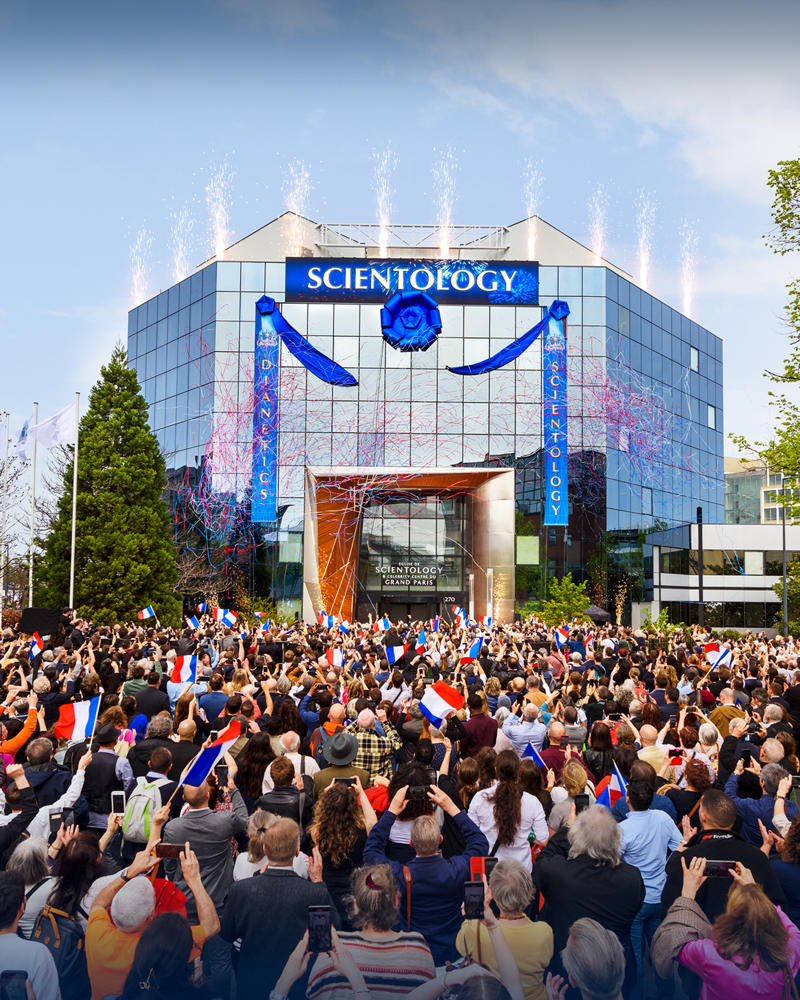Exactly How Scientology Impacts Personal Development: A Comprehensive Analysis
Exactly How Scientology Impacts Personal Development: A Comprehensive Analysis
Blog Article
Exposing Myths: Separating Truth From Fiction Regarding Scientology

Origins of Scientology
The origins of Scientology trace back to the mid-20th century when L. Ron Hubbard, a science fiction writer, started the idea system in the 1950s. Hubbard's growth of Scientology stemmed from his earlier self-help system called Dianetics, which he introduced in the 1940s - Scientology. The shift from Dianetics to Scientology marked a shift towards a more thorough spiritual approach that incorporated aspects of psychology, Eastern spiritual practices, and Hubbard's own concepts on human presence
Hubbard's exploration right into the human mind and spirit brought about the creation of Scientology as a religion focused around the idea of spiritual knowledge and self-improvement with a process called auditing. Bookkeeping, a type of spiritual counseling, intends to assist people conquer psychological and psychological barriers, known as engrams, that prevent personal development and recognition.
As Hubbard's mentors acquired popularity, Scientology developed into a global activity with a significant following. Regardless of criticisms and controversies surrounding its methods and beliefs, Scientology remains to bring in followers looking for spiritual gratification and individual development.
Core Ideas and Practices

Another basic element of Scientology is the idea of the Thetan, the spiritual significance of an individual that transcends the physique. Followers aim to comprehend and reinforce their link to the Thetan through different practices such as study programs and purification rituals.
The Church of Scientology likewise puts a strong More Help focus on the relevance of individual responsibility and the belief that people have the power to shape their very own destinies. With adherence to moral standards and the pursuit of self-improvement, practitioners of Scientology aim to achieve greater degrees of joy, success, and spiritual fulfillment.
Objections and debates
Among Scientology's core ideas and practices exists a landscape marked by conflicts and criticisms that have stimulated intense argument and examination. Furthermore, Scientology's standing as a tax-exempt spiritual organization in some countries has actually been a factor of contention, with doubters arguing that its methods are more similar to a company than a religion.
One more area of dispute borders the Church's therapy of movie critics and dissenters. Reports have arised of harassment, scare tactics, and lawful dangers directed at those who speak out versus Scientology. This has actually raised problems about liberty of speech and the company's commitment to transparency and responsibility.
While Scientology has actually emphatically rejected a number of these accusations, the criticisms and disputes surrounding the Church remain to sustain public suspicion and scrutiny.
Scientology's Influence in Society
Scientology's impact extends to the world of mental health, where its views on psychiatry and psychology have triggered arguments within the clinical neighborhood. In the realm of enjoyment, Scientology's association with top-level celebrities has brought attention to the religious beliefs, both favorably and negatively. The participation of famous numbers in Scientology has, in some cases, served to popularize the faith, while in others, it has actually drawn criticism and increased questions concerning the church's beliefs and techniques.
Debunking Common Misconceptions
The Church of Scientology is lawfully identified as a faith in several countries, including the United States, where it has tax-exempt standing. Like other religions, Scientology supplies spiritual support and techniques for pop over to this site its members.
An additional mistaken belief is that Scientology forces its members to reduce connections with their households. In truth, the church highlights the relevance of household relationships and motivates participants to preserve healthy and balanced links with their loved ones.

Verdict
Finally, it is essential to separate fact from fiction when reviewing Scientology. By examining its origins, core ideas, debates, and impact in society, we can disprove usual misconceptions bordering this religious beliefs. It is critical to approach the subject with a unbiased and essential attitude in order to recognize Scientology properly and right.
Rooted in a structure of spiritual knowledge and personal development, Scientology's core ideas and methods include a diverse range of principles and rituals. Central to Scientology is the belief that human beings are immortal spiritual beings who have actually neglected their real nature. The participation of renowned numbers in Scientology has, in some cases, offered to promote the religious beliefs, while in others, it has actually attracted criticism and increased inquiries regarding the church's ideas and practices.
The Church of Scientology is legitimately recognized as a religion in several countries, including the United States, where it has tax-exempt status. Like various other religions, Scientology gives spiritual guidance and methods for its participants.
Report this page